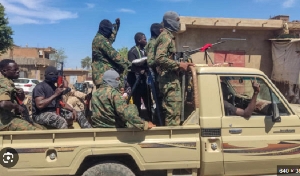Health News of Wednesday, 11 February 2015
Source: GNA
‘First Aiders have no right to declare casualties dead’
Mr Tony Kwame Apedzi, Chief Executive Officer of St John Ambulance, Ghana (SJAG), has appealed to first aiders never to declare casualties dead, especially those who might be unconscious.
This, he said, would help to save more lives as sometimes people declared dead on accident scenes by first aiders and others might actually be alive.
He said:"The right to declare an unconscious person dead or alive lied only with a certified medical officer,” adding that no other person had such right.
Mr Apedzi was addressing the opening of a five-day training session on first aid for police officers at the Accra Regional Police Command.
He said the training session, which would be reciprocated in all the 10 regions, was to enable participants to gain insight into how to manage gunshot wounds sustained during operations before taking casualties to the hospital.
“It is to equip the officers with basic knowledge on first aid so that they help each other in case there are casualties during operations,” he said.
He noted that in most cases, people in their quest to assist casualties, put their own lives at risk by simply not observing basic health rules and appealed to first aiders to get immunised to avoid the transfer of diseases between the first aider and the casualty.
Mr Apedzi urged the public not to take first aiders as doctors who could give definite medical care, but rather, endeavour to seek appropriate treatment after the administration of first aid.
“First aid aims to preserve lives and limits the effect of pain on a casualty and promote their lives but not necessarily to replace definite medical treatment,” he said.
He urged first aiders to work within their scope of training to avoid complicating matters and always wear protective gloves before assisting casualties to avoid transfer of fluid.
Mr Apedzi expressed appreciation to the Accra Regional Police Command for the assistance in organising the training session.
DCOP Dr George Asiamah, Director-General, Police Health Services, in a speech read on his behalf, expressed his appreciation to the SJAG for the initiative and urged the officers to take the course seriously.
He said his outfit was considering adding ambulance services to officers who would go for operations to provide them with first aid in case of casualties.
Some of the courses to be taught include Cardio Pulmonary Resuscitation, how to arrest bleeding, how to place the injured in a recovery position, and use of Personal Protective Equipment.










